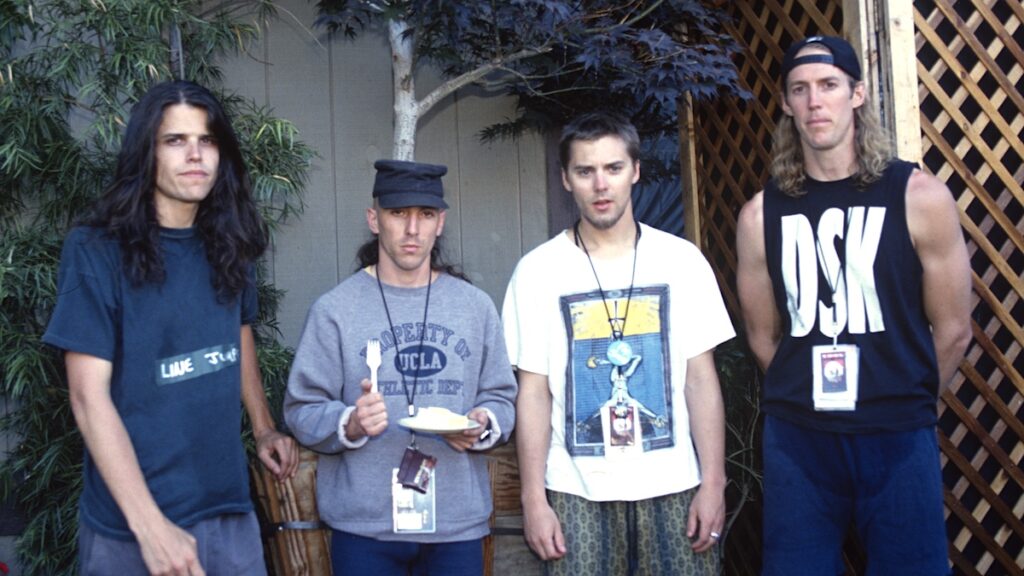Among other trends, the early 1990s saw grunge take over as the dominant rock scene, leaving the hair-metal bands that had commanded the previous decade in the dust.
At the same time, though, the burgeoning subgenre of progressive metal found Queensrÿche, Fates Warning, Shadow Gallery, and Dream Theater offering elaborate concepts and vibrantly intricate instrumentation. Still, there was room for expansion, especially in terms of merging the towering track lengths and erudite ideas of prog with the grimier timbres and subject matter of industrial and alternative metal.
Enter Tool, a ragtag foursome formed in 1990 and comprised of a couple of guys working in the film industry (guitarist Adam Jones and bassist Paul D’Amour) and up-and-coming musicians (vocalist Maynard James Keenan and drummer Danny Carey). Brought together by a series of fortuitous commonalities, they soon signed to Zoo Entertainment; toured with White Zombie and Rage Against the Machine; and injected peculiar ferocity and confrontational viewpoints into 1992’s Opiate EP.
A year later, on April 6th, 1993, they released their full-length debut, Undertow. While not as cerebral, sophisticated, or weird as their subsequent LPs, it clearly displayed the band members’ gifts as songwriters, composers, and players.
Specifically, Tool built upon influences such as King Crimson, Judas Priest, Tom Waits, and Yes amidst striking a finer balance between sophomoric humor and startling examinations of what Keenan once labeled “some real ugly things taken straight from nightmares.” On that note, they tapped into a shared interest in lachrymology, with D’Amour telling Axcess in 1994: “[It’s] like a life philosophy of dealing with yourself and dealing with the pain or whatever bullshit you got inside you.”
Thirty years later, Undertow deserves recognition for kickstarting the career of perhaps the most characteristically provocative, experimental, multifaceted, and enduring metal band of their generation. (Of course, it also stands out for being Tool’s only LP with D’Amour, who left due to creative differences and was replaced by Justin Chancellor for 1996’s Ænima).

